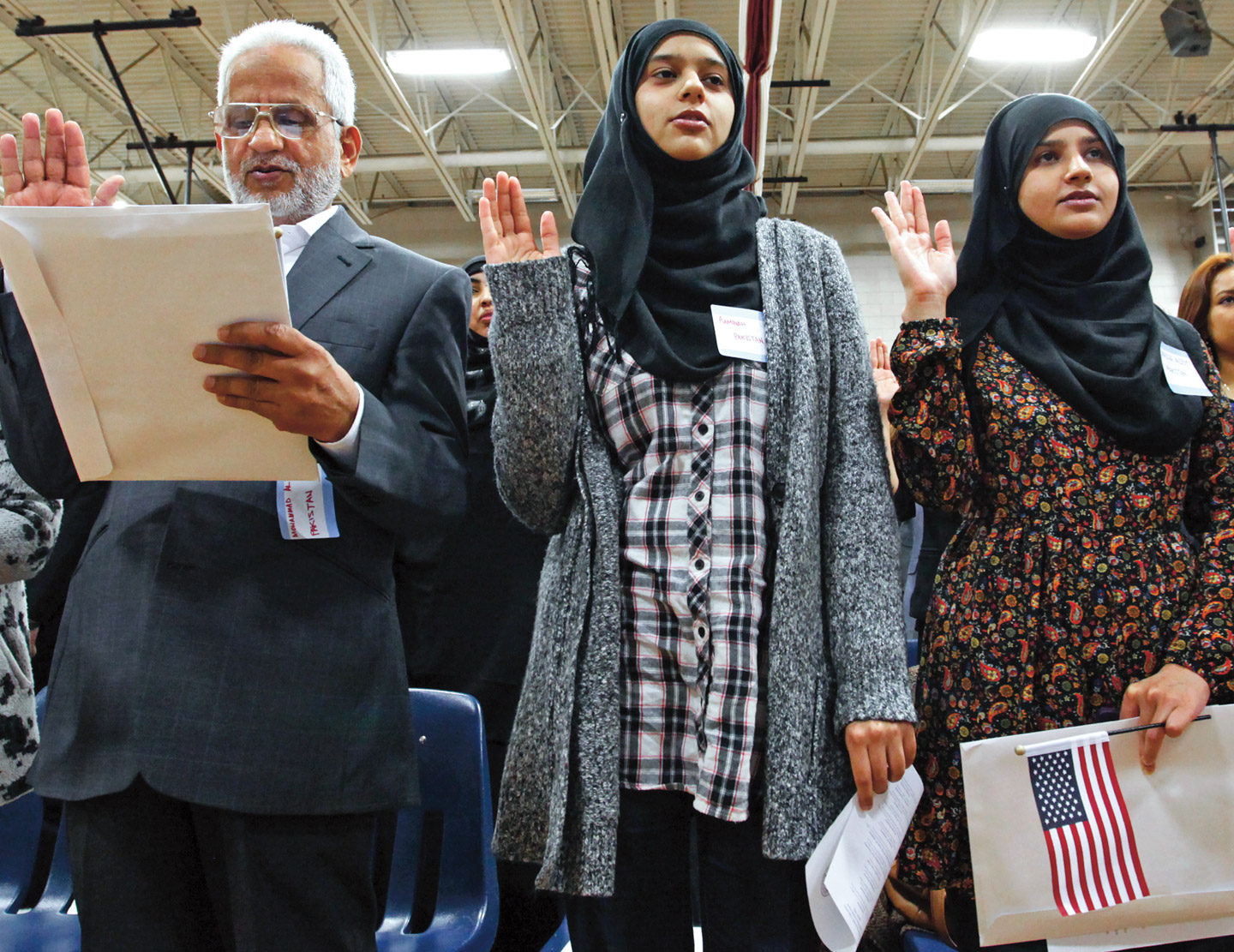At Donald Trump rallies, the call can come at any moment: “Build the wall! Build the wall!” the crowd chants. “We will build it,” the Republican nominee for president replies. “And who’s going to pay for the wall?” he prompts his audience. “Mexico!” the people roar.
Trump’s promise to build a wall along the entire 2,000-mile border between the U.S. and Mexico has struck a chord with many Americans. They say the estimated 11 million undocumented immigrants living in the U.S.—many of them from Mexico—are taking American jobs and costing the U.S. billions of dollars annually in social services. Last year, in response to ISIS-inspired terrorist attacks in the U.S., Trump also called for a temporary ban on foreign Muslims entering the country, arguing that there might be terrorists among them. More recently, Trump said he would ban immigrants from any nation that has been “compromised by terrorism.”
Yet many Americans disagree with Trump’s proposals. They say immigrants help grow the economy and that undocumented immigrants take low-paying jobs that no one else wants. Democratic presidential nominee Hillary Clinton has pledged to fight for reforms that would give undocumented immigrants a path to citizenship. And many Democrats and Republicans believe, as Clinton has said, that a ban on Muslims “goes against everything we stand for as a country.”
Such arguments may be making headlines, but none of them are new, says Roger Daniels, author of several books on immigration. He says Americans have had “a love and hate relationship” with immigrants since the nation’s founding (see Timeline).
At Donald Trump rallies, the call can come at any moment: “Build the wall! Build the wall!” the crowd chants. “We will build it,” the Republican nominee for president replies. “And who’s going to pay for the wall?” he prompts his audience. “Mexico!” the people roar.
Trump has promised to build a wall along the entire 2,000-mile border between the U.S. and Mexico. And that’s struck a chord with many Americans. They say the estimated 11 million undocumented immigrants living in the U.S.—many of them from Mexico—are taking American jobs. They also blame them for costing the U.S. billions of dollars annually in social services. Last year, in response to ISIS-inspired terrorist attacks in the U.S., Trump also called for a temporary ban on foreign Muslims entering the country. He argued that there might be terrorists among them. More recently, Trump said he would ban immigrants from any nation that has been “compromised by terrorism.”
Yet many Americans disagree with Trump’s proposals. They say immigrants help grow the economy. They also argue that undocumented immigrants take low-paying jobs that no one else wants. Democratic presidential nominee Hillary Clinton has pledged to fight for immigration reform. She wants to give undocumented immigrants a path to citizenship. And many Democrats and Republicans believe, as Clinton has said, that a ban on Muslims “goes against everything we stand for as a country.”
Such arguments may be making headlines. But none of them are new, says Roger Daniels, author of several books on immigration. He says Americans have had “a love and hate relationship” with immigrants since the nation’s founding (see Timeline).

